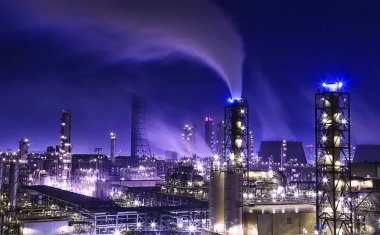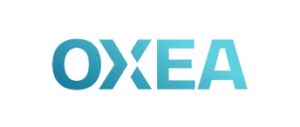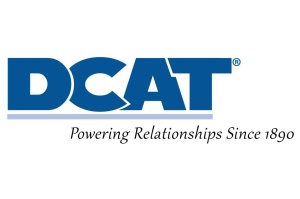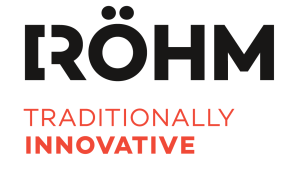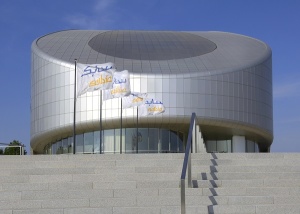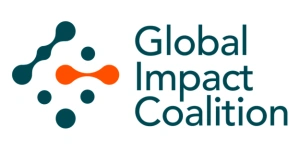
M&A in the Chemical Industry
Navigating Uncertainty While Unlocking Strategic Opportunities

Navigating Uncertainty While Unlocking Strategic Opportunities
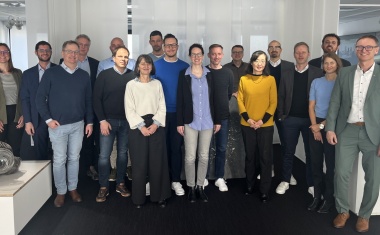
The Global Impact Coalition (GIC), a CEO-led collaborative platform originally incubated at the World Economic Forum, launches the world’s first Automotive Plastics Circularity pilot together with seven global leaders in the chemical and recycling industries.
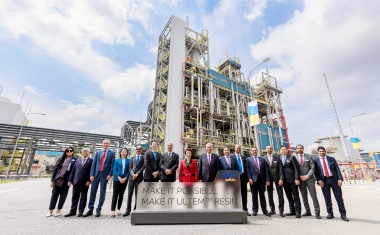
SABIC recently announced the official launch of its new US$170 (€157.7) million ultem resin manufacturing facility in Singapore, marking the company’s first advanced specialty chemical manufacturing facility in the region producing the high-performance thermoplastic, ultem resin.

In this interview, Charlie Tan, CEO of the Global Impact Coalition (GIC), explains the initiative’s scope and describes some key activities.
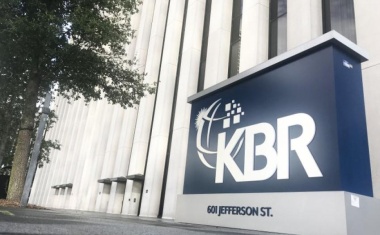
US-based multinational contractor KBR has been awarded a contract by SABIC Fujian Petrochemicals to license its phenol technology in China.
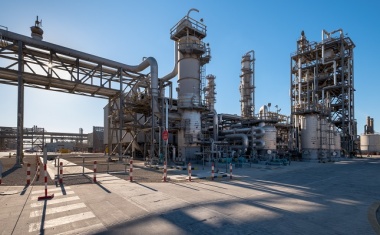
SABIC, Scientific Design (SD), and Linde Engineering have signed a Memorandum of Understanding to collaborate on decarbonizing the SD Ethylene Glycol Process.
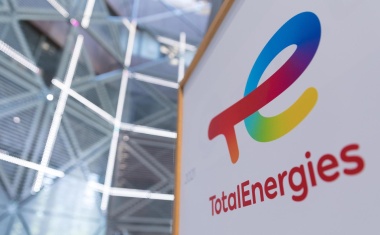
Major French oil company TotalEnergies SE and Saudi Basic Industries Corp. (SABIC) are considering selling a jumbo US plant that produces styrene and polystyrene, used in products such as plastic packaging, disposable cups, and insulation.

German PMMA specialist Röhm has signed a final agreement to acquire SABIC’s Functional form business, which makes high-end polycarbonate film and sheet.

Saudi Arabia is transferring another 4% chunk of state-owned oil giant Saudi Aramco, parent company of petrochemicals and plastics producer SABIC, to Sanabil Investments, a vehicle wholly owned by the Kingdom’s Public Investment Fund (PIF).

Saudi Aramco and Linde Engineering have agreed to jointly develop new ammonia cracking technology and plan to build a demonstration plant in northern Germany.

Finnish technology and engineering company Coolbrook has signed a partnership agreement with Germany’s Linde Engineering to develop and deploy its RotoDynamic Reactor (RDR) technology that replaces fossil fuels with clean electricity for heating the furnaces in ethylene crackers.

SABIC has announced it is planning to build three new plants in Saudi Arabia to produce catalysts used in the manufacture of chemicals and polymers.
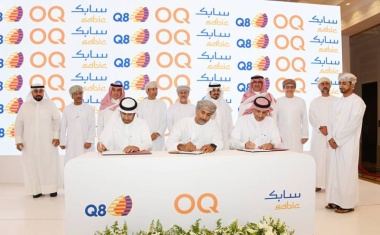
SABIC, OQ and Kuwait Petroleum International (KPI) have agreed to jointly develop a petrochemical complex in Duqm, Oman, reviving a project that stalled in late 2020 because of the coronavirus pandemic.
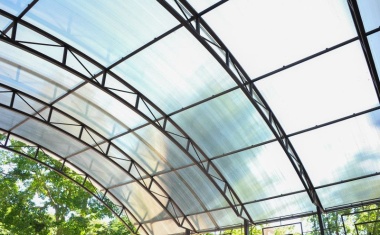
PMMA specialist Röhm plans to acquire SABIC’s polycarbonate-based Functional Forms business in a deal due to close in H1 2024. The company said the buy is key to its strategy to advance its transparent semi-finished products business into a leading multi-polymer global player.

SABIC, Saudi Aramco and PKN Orlen have signed a joint development agreement to assess the technical and economic feasibility of a petrochemical project in the Polish city of Gdansk. The project would include a steam cracker and downstream plants.

SABIC has announced plans to set up a crude oil-to-chemicals (COTC) complex in Ras Al-Khair, Saudi Arabia. The complex is expected to convert 400,000 bbl/day of oil, the company said in a statement to the Tadawul stock exchange.

During this year’s K show, SABIC will highlight its commitment to circular, sustainable solutions designed to reduce plastic waste and support the shift to product electrification.
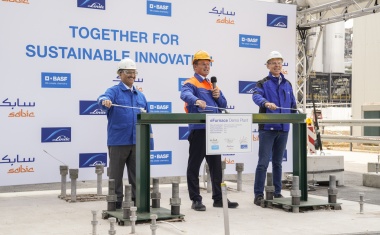
BASF, SABIC and Linde have started building a plant to demonstrate using electricity instead of natural gas to heat steam cracker furnaces. The move follows the signing of a joint agreement in March 2021 to develop and demonstrate solutions for electrifying steam crackers.
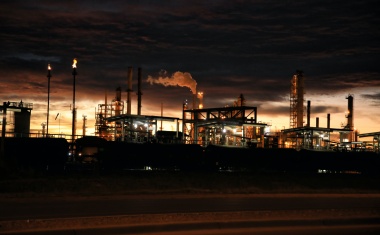
Plastics and fertilizer producer Borealis and Abu Dhabi National Oil Co (ADNOC), the United Arab Emirates’ largest oil company, are lining up banks to help arrange a potential listing of their plastics venture Borouge, the Bloomberg news agency has reported.
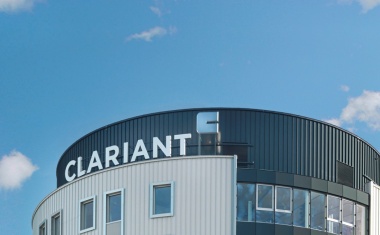
Clariant has signed definitive agreements to divest its 50% stake in the joint venture that owns Scientific Design Company to its long-term joint venture partner, SABIC. The Saudi group will execute a call option raised in 2015 to acquire the stake in the business bought by Germany’s Süd-Chemie in 2003 prior to its acquisition by Clariant.
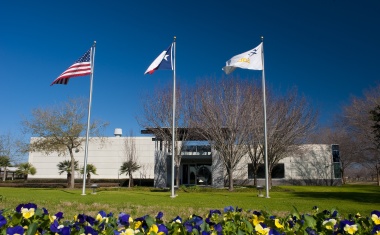
ExxonMobil and SABIC have brought on stream what they tout as the world’s largest ethane cracker. The facility at Portland, Texas, which is operated by the companies’ Gulf Coast Growth Ventures (GCGV), has capacity to produce 1.8 million t/y of ethylene.

SABIC Agri-Nutrients has agreed to acquire a 49% stake in ETG Inputs Holdco for an enterprise value of $320 million. ETG Inputs Holdco blends and distributes fertilizers, seeds and crop protection products across Africa from its more than 350 distribution centers.
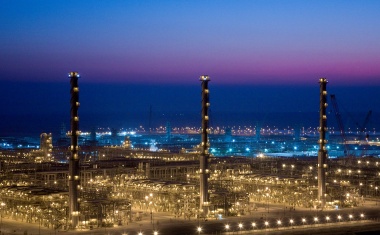
Saudi Aramco has set its sights on becoming a global player in a number of petrochemical and energy fields. As one of its biggest projects, the world-leading oil producer recently announced plans to invest in the Polish chemicals sector. Together with its 70% subsidiary SABIC, it signed a Memorandum of Understanding (MoU) with Plock-based PKN Orlen to explore possibilities for cooperation.
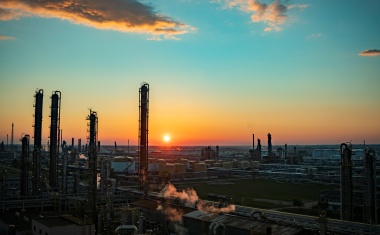
SABIC has signed a Memorandum of Understanding (MoU) with parent group Saudi Aramco and Poland’s PKN Orlen to explore potential project opportunities in central and eastern Europe.

With a capital injection of £850 million from parent company Saudi Aramco, petrochemicals and plastics producer SABIC has unveiled plans to restart the currently idled cracker at Wilton Teesside in northeast England. The company said the investment will help to implement the Kingdom’s new global carbon neutrality strategy called Saudi Green Initiative (SGI).
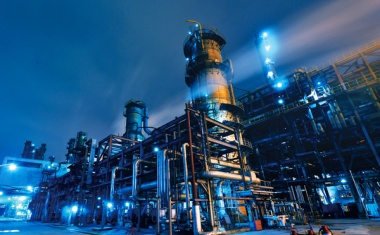
Leading global chemical companies and the World Economic Forum (WEF) have announced that they are entering an agreement to formalize the Low-Carbon Emitting Technologies (LCET) initiative into a stand-alone entity by the end of 2023, to share early-stage risks and co-invest in developing and upscaling low-carbon emitting technologies.

The EU Commission’s ambitious plan for a European Green Deal, launched shortly before the pandemic struck in early 2020, aims to make the continent the world’s first climate-neutral region by 2050. The goals spelled out in January last year call for reduction of greenhouse gas emissions by at least 50% up to 2030, compared with 1990 levels.
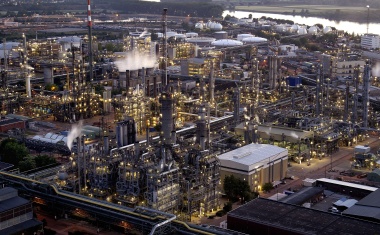
BASF, SABIC and Linde have signed a joint agreement to develop and demonstrate solutions for electrically heated steam cracker furnaces and are evaluating the construction of a multi-megawatt demonstration plant at BASF’s Ludwigshafen site in Germany, to start up in 2023.

The European Chemical Industry has set out on an ambitious path to become carbon neutral. Germany, as one of the major chemical manufacturing nations, has committed to achieve this goal by 2050.
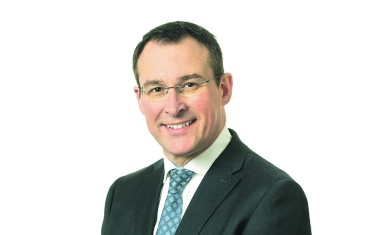
The European Chemical Industry has set out on an ambitious path to become carbon neutral.
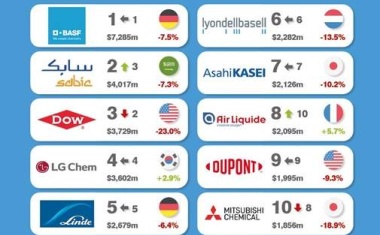
A coalescing of factors has led to arrested growth across the chemicals sector this year, with the brand value of the top 25 most valuable chemicals brands contracting by 8% on average, according to the latest report by Brand Finance, an independent brand valuation consultancy.

Saudi Aramco and SABIC are re-evaluating the scope of their proposed crude oil-to-chemicals (COTC) complex in Yanbu, Saudi Arabia.
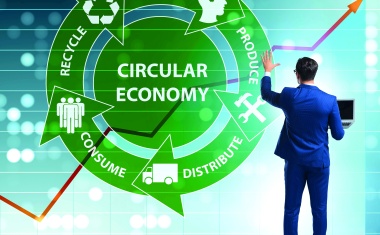
The chemical industry is on the threshold of a new era – the age of circularity. We asked industry experts to share their opinions on this transformational topic.
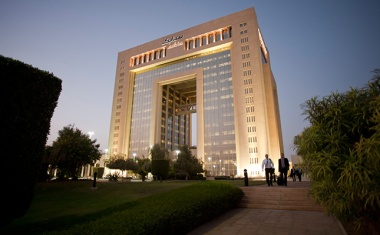
SABIC’s Nusaned Investment unit has set up a joint venture with SCHMID Group to develop and manufacture vanadium redox flow batteries at Dammam 3rd Industrial City.
